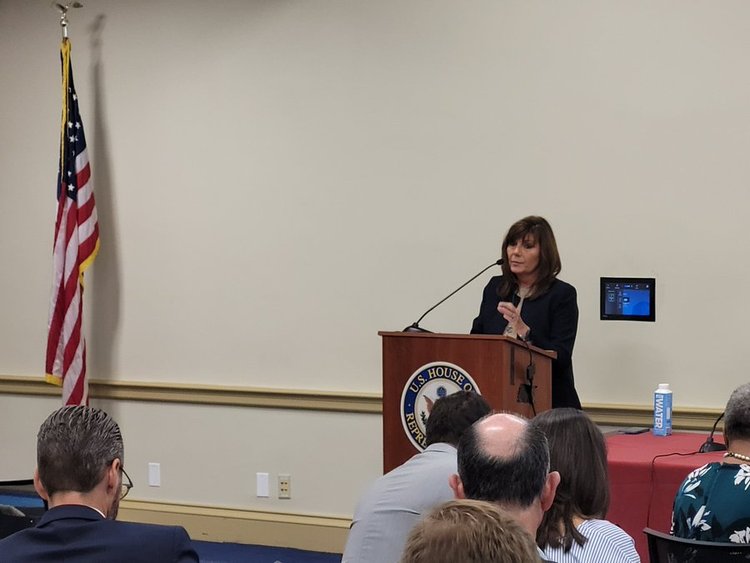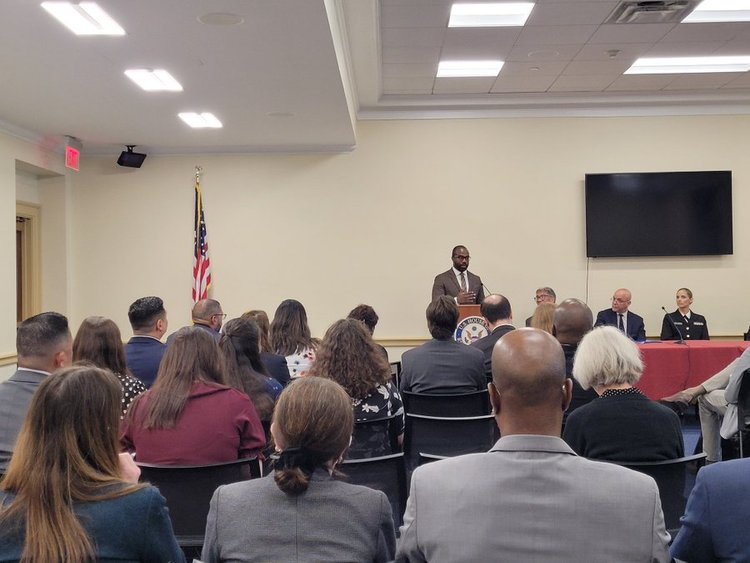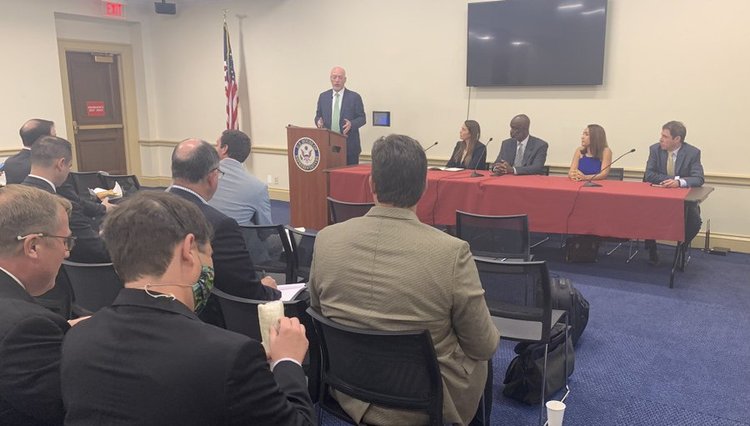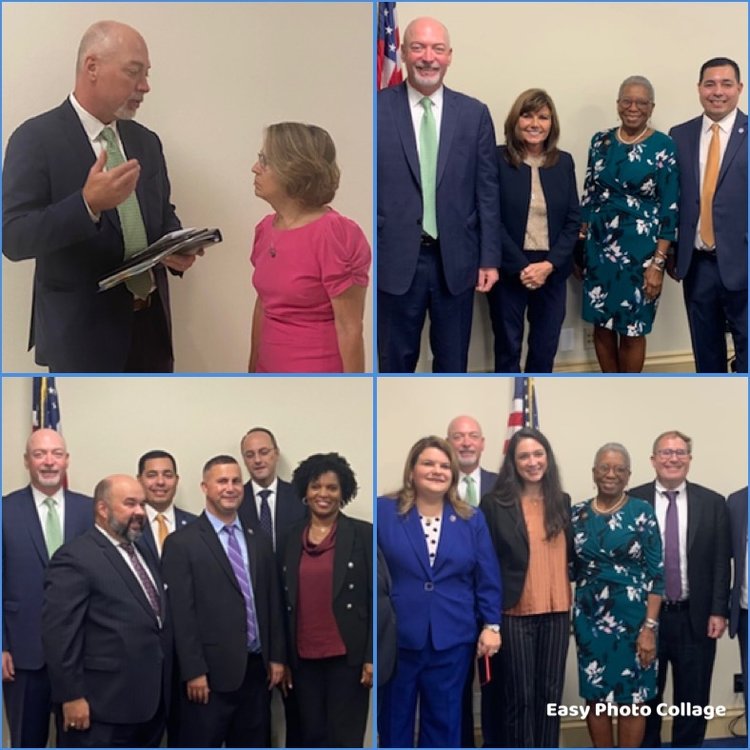On Tuesday, September 20, the Health Innovation Alliance, and our collaborating partners the National Health IT Collaboration and the Telehealth Equity Coalition, hosted the Legislative Health Equity Summit on Capitol Hill.
Leaders in Congress, the Administration, and the private sector came together to identify and develop solutions to the digital divide.
Congresswoman Mariannette Miller-Meeks (R-IA) kicked off the summit with a call to action to incorporate artificial intelligence, interoperability, and technology into healthcare. She discussed how modernization can be used to address access, affordability, and prevention, laying out a modernization agenda for Congress, that includes data sharing and privacy protections, the use of artificial intelligence for care and to reduce fraud, and FDA reform to speed device approval.

Congresswoman Dian Harshbarger (R-TN) spoke next and made the case for expanded access to healthcare through broadband, telehealth, and pharmacists. Congresswoman Harshbarger highlighted how the COVID-19 public health emergency telehealth extensions have been vital to rural communities and called for a commonsense approach at the federal level to telehealth licensure, similar to what has been done at the state level. She also called for broadband to be included in infrastructure bills.

Congressman Darren Soto (D-FL) also spoke about the expansion of telehealth during the pandemic and the growing use of technology in healthcare. Like Congresswomen Miller-Meeks and Harshbarger, Soto believes that technology will provide more access to care for underserved communities, but Congress must take action to help facilitate more incorporation and uptake.
A panel of experts from the public sector, including the National Telecommunications and Information Administration, U.S. Department of Agriculture, U.S. Army Telemedicine & Advanced Technology Research Center, Office for the Advancement of Telehealth Health Resources and Services Administration, and the U.S. Department of Veterans Affairs, examined how different agencies are addressing health equity efforts across the country, administering funds, and engaging directly with community organizations.

Marvin Figueroa, with the U.S. Department of Health & Human Services, also addressed the summit. He outlined President Biden’s focus on health equity and what is being done to address disparities, including telehealth, mental health, and chronic illness.

HIA’s executive director, Joel White, moderated the private sector panel which included the Consumer Technology Association, ALLvanza, TracFone, and the Greystone Group. There was a consensus that we cannot advance as a society without communities having access to technology, however, access to technology means nothing if the user doesn’t have the skills to use it or lacks trust. Trust is a vital component in getting people to use technology. To create that trust, education is necessary. Education in how to use the technology and how information is used. Without the access or ability to use technology in healthcare, underserved communities will get left even farther behind.

Puerto Rico’s Resident Commissioner Jenniffer González-Colón also addressed the summit about the important role technology and the internet play in accessing healthcare, especially in times of crisis, like the one her island community was experiencing in the wake of hurricane Fiona.

The summit successfully highlighted the growing use of technology in healthcare and how it can bring health equity to those communities most in need. However, the issue cannot be solved by one sector alone. The government, private sector, and nonprofits must all work together.